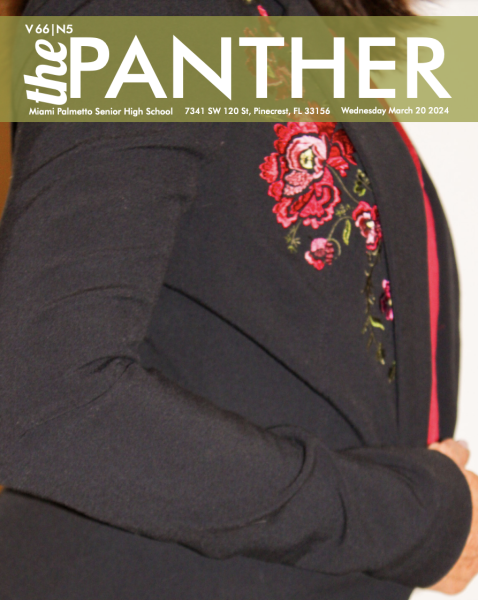Giorgia Meloni Becomes Italy’s New Prime Minister
October 16, 2022
On Sept. 25, Giorgia Meloni won Italy’s general election and became their first female Prime Minister. Meloni awaits the official title, as the new Senate and Chamber presidents must be selected by Parliament first. Once the formulation of a cabinet list and a vote of confidence from Parliament passes — both of which are expected to conclude by the end of October — Meloni will officially hold the title of Italy’s Prime Minister.
In July, Mario Draghi resigned as Italy’s Prime Minister due to a lack of support from his coalition. Although he withstood the ‘no confidence vote’ issued against him, Draghi no longer wanted the position. Meloni, the leader of the conservative right-wing populist political party, Brothers of Italy, won the general election following Draghi’s resignation with about 26% of the total votes.
Meloni based her campaign on a variety of factors, including Italy’s increasing birth rate from 1.2 children per woman — one of the lowest birth rates in the world. Italy’s population consists of predominantly older people who lean toward conservative views, many of whom believe their Italian identity is being overrun by immigrants. To raise the birth rate and the Italian economy, Meloni announced implementing tighter borders, resulting in significantly less immigration. She has also announced a naval blockade from Northern Africa to prevent migrants from entering the country.
“Italians have borne the brunt of immigration across the country across the Mediterranean, and so many Italians [think of] it as unfair. There are large immigrant populations now that emerge, which is [a] pretty recent phenomenon in Italy. It’s something of a backlash, if you will, in Italy among the general population,” Miami Palmetto Senior High School AP European History teacher Daniel Corradino said.
Meloni’s anti-immigrant attitude sparked controversy amongst other nations who worry about a right-wing coalition with nationalistic ideas ruling for the first time since World War II. As a teenager, Meloni supported Italy’s fascist leader, Benito Mussolini, yet she has since renounced her support. In addition to dissent against anti-immigration attitudes, the European Union (EU) fears Meloni may steer Italy in a different direction.
“The bigger fear with her is, do other countries go the same direction? In Spain, there’s a party called the Box Party. Do they follow her party and do they become the next ruling party in Spain? You also had the National Front in France; do they become the next nationalist party? So that’s kind of the fear,” Corradino said.
The EU also fears that Meloni may soften Italy’s sanctions placed on Russia due to a decline in the country’s economy. Despite Meloni’s support for Ukraine, her coalition partners have displayed impartial attitudes towards Putin. This worries the EU because if Italy weakens its stance against Russia’s invasion, it reflects poorly upon the supranational union. However, removal from the EU remains difficult and unlikely.
“The Italians are very dependent upon subsidies that are given to them by the EU. So it’s very difficult for them to kind of separate themselves. They are much more dependent on it than, obviously, Britain is,” Corradino said.
MPSH senior and Vice President of the Italian National Honor Society, Valentina Nicolini, has learned about Italian culture and politics through her Italian descent and by taking Italian dual enrollment classes. In addition to learning the language in class, Nicolini read about Italian culture, watched Italian movies and viewed specific Italian photographs. Outside of the classroom, Nicolini has gained insight into Italian culture and politics from both her family, who lives there and her travels to Italy.
“From the class itself, I learned the different kinds of cultures but I also experienced it firsthand and it’s discussed a lot in my house. Italian politics are played from the news and game shows are played. Italian channels are played more than probably any other channel in my household itself,” Nicolini said.
In contrast to American politics, Italian Prime Ministers are not as long-lasting in Italy. In the past ten years, the longest-serving Prime Minister, Silvio Berlusconi, only served for three years. Since 2008, most Prime Ministers have only served for one year.
“Your party is dominant today, and maybe next time, it’s not so dominant. There was this one movement, the Five Star Movement, that was a big party of the rise…and they had a moment where they briefly took over and then their coalition fell apart. So it’s not easy. European parties in general, they can rise very fast, and then they can kind of necessarily disappear, or they can kind of fall apart. It is really going to depend on performance,” Corradino said.
It remains difficult at this time to predict the impact Meloni will have on Italy. For now, eyes turn to Italy to observe how Meloni will begin her term as Prime Minister.
“With a leader itself changing its views, I feel like it could go different ways just because it is not the same kind of balance in America, it’s a completely different system. I don’t really know how to predict [Meloni’s appointment], but I feel like people will take it like a good way with the new changes. I do know there are some people who are tired of the old ways and so now they are like, it’s something new and it’s the people who don’t like change,” Nicolini said.










